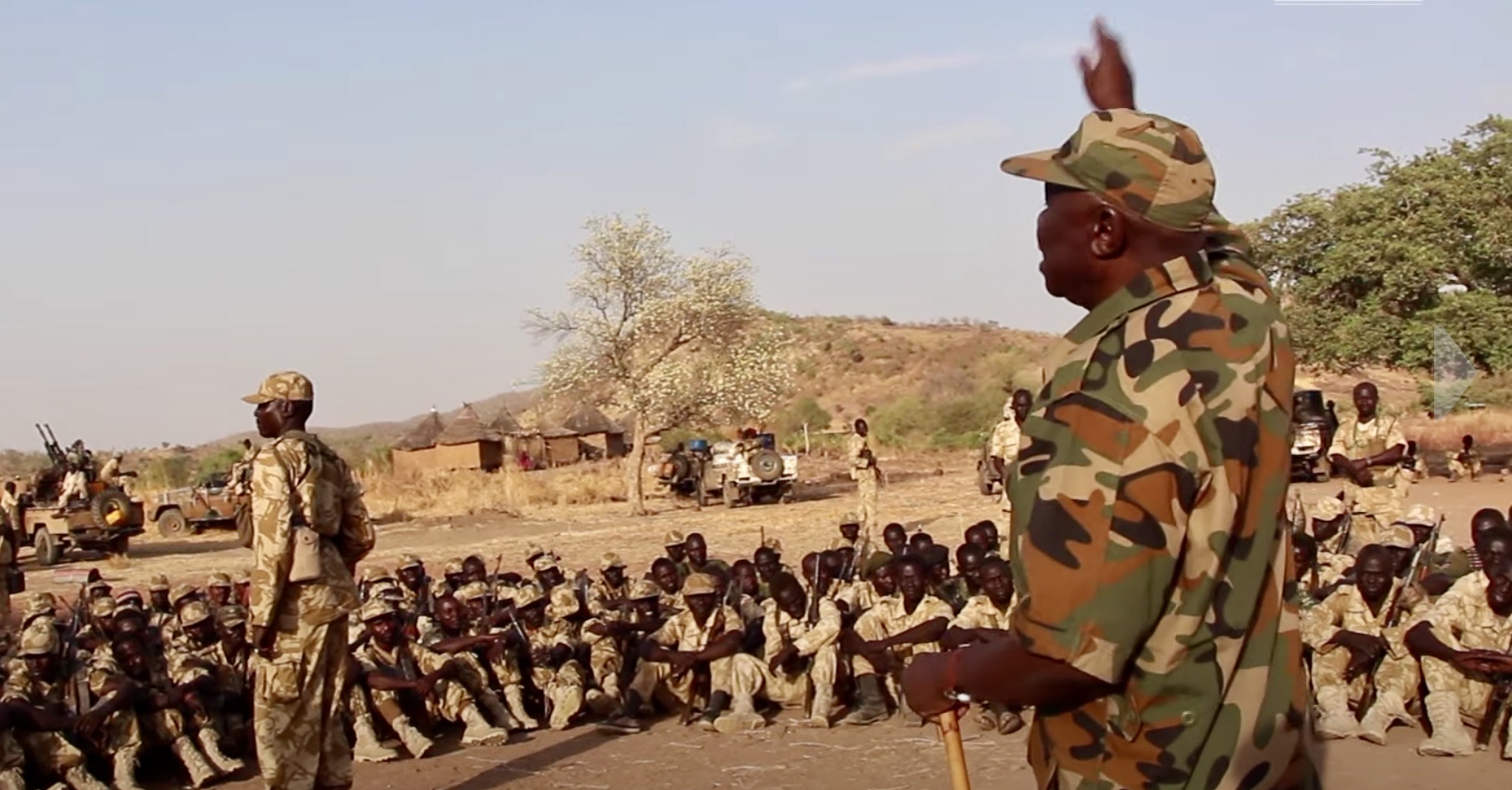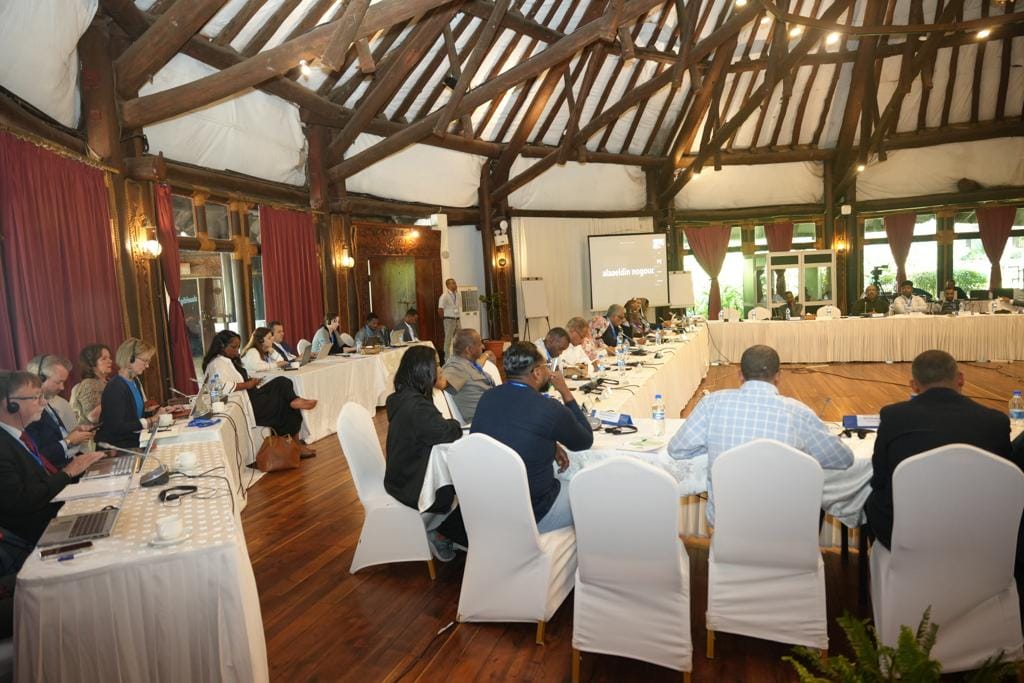27 May 2024
Abdallah Hamdok, Sudan’s former prime minister and current head of Taqqadum, a pro-civilian power coalition set up to call for peace in the country’s 13-month civil war, may be at loggerheads with other Taggadum members after signing a declaration with two rebel movements.
On 18 May, Hamdok signed a political declaration in Nairobi, Kenya, with two rebel groups: the Sudan Liberation Movement (SLM) and the Sudanese People’s Liberation Movement-North (SPLM-N), calling for an end to the war, aid access, a secular state in Sudan, and the right to self-determination if a secular state is not attained.
Sources within Taqqadum told Ayin that the Nairobi Resolution will be discussed at a major convention starting today in Addis Ababa, Ethiopia.
In the signed declaration, the three leaders pledge to tackle the challenges confronting Sudan and address the country’s historical crisis. The leaders urge the warring parties to agree to a ceasefire and to obey international laws and allow humanitarian access in their controlled areas. “The declaration signed by former Prime Minister Abdalla Hamdok, leading the Taqaddum civilian group, Abdel-Wahid Mohammed Nur of SLM and Abdelaziz al-Hilu of SPLM-North is broadly welcome,” said Ahmed Suliman, a senior researcher at the UK-based think-tank, Chatham House. “It reinforces calls for an immediate ceasefire to pave the way for ending the war, emphasises the need for warring parties to remove obstacles to aid delivery – which the SPLM-North reinforced in their recent talks with the army in Juba, and calls for a federal democratic civilian government in Sudan, with equal participation for all Sudanese.”
But the stick of contention comes from the declaration’s call for a secular, decentralized state in Sudan to be included in the next constitution -otherwise, different regions in Sudan will be granted the right to self-determination.

Secular or secession
Both the SPLM-N and SLM under Hilu and Abdel-Wahid, respectfully, are adamant that a secular Sudan is the only political future for the country. “We insist on secularism as the only guarantee for equal citizenship in a country rich in religious and cultural diversity,” Chatiga Dalman, the SPLM-N Chair of the Culture and Information Committee, told Ayin. “Implementing secularism is the sole assurance of democracy, as modern states are fundamentally secular, there are no modern theocratic states.” The SLPM-N view self-determination as the only alternative if secularism is not implemented in the next constitution. “Self-determination is the alternative if we fail to establish a secular state,” Dalman said. “If secularism is not implemented, there will no longer be a country called Sudan”.
According to Mohamed Abdelrahman al-Nair, spokesperson for the SLM-AW, establishing a secular state in Sudan will help address some of the country’s long history of wars and political instability. “When examining the causes of the crisis, you find that the imposition of Islamist and Arab-centric projects in a diverse and multifaceted nation, the distortion of the true identity of the state, the exploitation of religion in politics, the dominance of a small elite –along with the lack of justice in the distribution of power and wealth, have all played a significant role.”
Al-Nair believes Sudan needs a national project that aligns with the aspirations of all segments of Sudanese society. “The foremost step is to establish a secular, democratic and federal system where unity among all Sudanese regions is voluntary, not imposed by force and coercion.”
Abu Jokh sees the declaration as a glimmer of hope for achieving a broader unity that includes both movements, as they choose to distance themselves from the civil democratic forces since the ouster of the Bashir regime. “It will enhance the unity of Sudan and undermine the separatist ambitions promoted by the dissolved National Congress Party, who are seeking a piece of land and a flag to establish their own state without regard to Sudan’s unity.”
As two rebel movements that have remained largely neutral in the current conflict and opposed to the war, the declaration helps to unite those who oppose the war, no matter how ideologically diverse this group, Suliman said. “I believe that it is vital to unite Sudan’s ‘No to War’ forces in as broad a movement as possible. This means bringing together groups with diametrically opposed political positions on certain issues to agree on certain core principles, [including] moderate Islamists.” Keeping certain groups out of an anti-war movement will only alienate and trigger more divisions, Suliman added.

Taqqadum tensions
The announcement of signing the Nairobi declaration has caused internal turmoil within the Taqqdum alliance, as it has become apparent that these issues lack backing from some groups within the alliance.
A source familiar with the matter, speaking on condition of anonymity, told Ayin the Nairobi Declaration compelled Taqqdum to initiate an intense internal discussion over the “contentious conditions” made within the declaration. The same source said the coalition was already experiencing internal instability before its signing.
In a public statement, the Umma party welcomed the declaration but voiced some reservations concerning the clauses calling for self-determination, among other areas. Maher Abu Jokh, a member of Taqqdum, believes that there is faction within the party that seeks to lead the Umma party out of Taqqdum coalition and sees the recent Nairobi agreement as an opportunity for this. “There are profound internal conflicts, but there is hope that the situation within the national Umma party does not lead to a split.”
Hamdok signed the Nairobi Declaration in his capacity as the former premier, not at as the head of Taqqadum. This, according to Suliman, helps the political leaders “side-step”, to some extent, differences over issues raised in the Nairobi Declaration.
Dalman believes the Umma Party, among others, hold an “outdated mentality” in regard to statehood within the country. “Sudan is no longer what it used to be –any political organisation not aligned with the modern state, which is a secular state, will face numerous challenges.
The SLM-AW hold a similar view that a secular state for Sudan is not up for negotiation or discussion with the Umma Party or any other group. “We are not particularly concerned about who objects to or agrees with the secular state,” he said. “They must understand that these issues are not merely demands but are essential for national unity and political stability.” Al-Nair highlighted the fact that the independence of South Sudan was directly linked to the insistence of the former ruling National Congress Party on imposing an “Islamic and Arab-centric agenda.”

